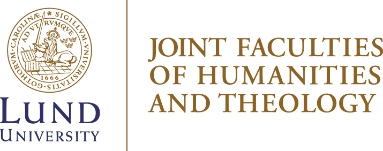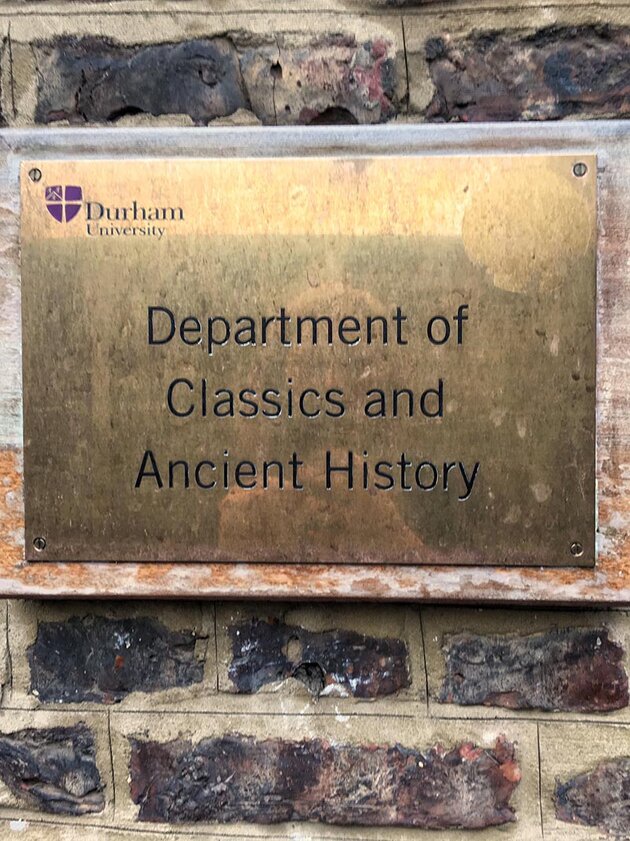Lovisa Brännstedt
Joint Faculties of Humanities and Theology
Lovisa has gained a lot of new knowledge and great experiences from her international collaborations. She stresses that it is challenging to adapt to another academic culture, but it can provide a sensitivity towards international students coming to Lund.
Hello Lovisa. What is your department and your subject area?
I am a researcher at the Department of Archaeology and Ancient History, specialising in ancient history, particularly Roman history.
You have networks abroad and a lot of international experience. Are there any particular connections or collaborations you would like to highlight?
For me as an ancient historian, the Swedish Institutes in Athens and Rome are invaluable. Staying there means getting close to the cultures that we study in the subject and provides a great opportunity to make contacts with Swedish and international colleagues. Some of the most valuable scientific conversations I have had have taken place in the kitchen of the Institute in Rome. Two collaborations have been particularly important recently: my time as a postdoc at Durham University in the UK and my role as scientific advisor in a Nordic performing arts project based in Bergen, Norway.
Tell us more about how you came into contact with these colleagues!
Like so many things, chance often plays a role. I had met Amy Russell, my mentor in Durham, at a conference when I was a doctoral student. Right after earning my PhD, we were both in Rome. We met up for a cappuccino and Amy asked me to come and spend some time in Durham. As for the performing arts project, the idea was born at the Scandinavian association in Rome, Circolo Scandinavo. Three of the future project leaders were grant holders at the same time and met in their fascination with the Roman Empress Livia. They then spoke to a fourth grant holder who suggested they contact me, since I had written my thesis on Livia.
Has it been difficult to apply for funding to pay for these trips abroad?
No, not really. There are plenty of scholarships and grants for travelling abroad, as long as you apply in good time.
Have you taught abroad? If so, in which course components? What were the student groups like and how do you think it worked?
I have taught Master students at the Swedish Institute in Rome and undergraduate students in Durham. In Rome, there was a small group of six students who had been given a scholarship to do the course, and we spent a lot of time in the field. Naturally, it was great to teach in the Roman Forum …
In Durham, there was a much larger group, and it was clear that they were motivated to study and had gained a lot of knowledge about antiquity from their years in primary school. There, the courses were not organised chronologically, which made me reflect on alternative ways of structuring our undergraduate education in Sweden.
Do you usually teach together with colleagues?
Yes, my colleague Fredrik Ekengren and I teach the course Barbarians & Romans together. We hold all lectures together, which is great fun for both us and the students – that is, if the course evaluations can be believed.
You have visited the Swedish Institute in Rome on several occasions. Is this something that is possible for all HT researchers?
Yes, the Institute is open to all researchers of the HT Faculties, as long as there is some connection to the Mediterranean world.
What do you think you have gained from your exchanges and collaborations, in terms of research, teaching and personal experience?
I have gained a lot from my exchanges and collaborations, such as new ways of thinking pedagogically, how a department can be organised, and how to design research projects. The most important thing is to have gotten to know other researchers, having met in person makes it much easier to stay in contact once you are back home.
What has been the best part of your stays abroad?
The best part has been getting to know new people and gaining new friendships and insights.
What has been the most challenging?
The most challenging thing has been to quickly familiarise myself with another academic culture. At the same time, it has hopefully made me more open to helping international students and colleagues feel at home in Lund.
Do you like to travel sustainably?
Yes, for a few years now I have been trying to take the train abroad as much as possible and recognise that you have to allow time for the actual travel aspect. Since it takes about 24 hours to get to Rome, it is more reasonable to make one long trip rather than two short ones. The last time I was in Italy, I combined it with a conference trip to Salzburg, splitting up the train journey.
Do you have any plans for further mobilities in the future?
Yes, next week I will take the train to Brussels together with colleagues from the think tank Humtank to learn more about how higher education policy is conducted in the EU, and in the autumn we will go on a professional development trip to northern Greece. I also hope to have the opportunity to go to Rome to work on my own research. And I would love to return to the UK ...


